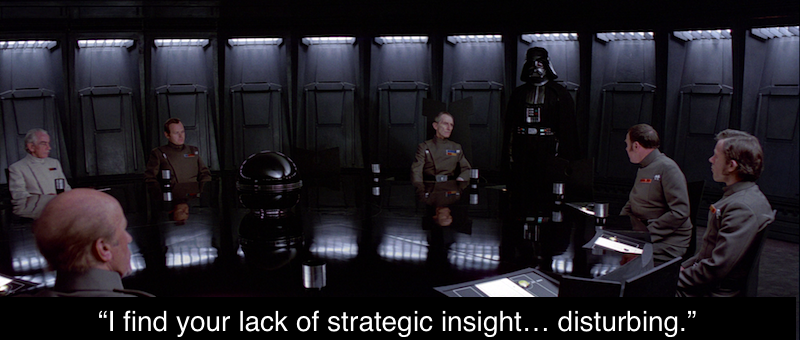We’ve all heard the story: two brilliant founders have an idea that will change the world. They gather a dedicated group of early employees/stock option holders around them and, through sheer grit, determination, and HUSTLE, they disrupt an industry and become billionaires in the process. The moral of the story: anyone with a good idea and the willingness to sacrifice everything on the altar of Hustle can become a success and the envy of their graduating class at the next reunion.
Except… that isn’t really true, is it? Every year, hundreds of thousands of technology startups fail, and of those that survive only a tiny percentage ever reach unicorn status. And those hustle-filled origin stories? Well, they’re not 100% factual, either: multiple studies and books have shown that luck plays a significant role in every company’s success, and while some founders are willing to acknowledge that fact, our cognitive biases push us toward crafting a narrative where our success was wholly due to our own hard work and perseverance in the face of adversity. So those founding myths skip the part where the brilliant youngsters met the right people or were born to the right parents and they focus instead on how they did it all themselves. “Luck is what happens when preparation meets opportunity!” they crow. But when that opportunity for the big pitch came, were they sharper for having averaged four hours of sleep a night for the past six months? Of course not.
According to myth, Sergey Brin and Larry Page started out manually answering search queries until they could automate the process (photo credit: William Mercer McLeod)
There’s no question that hard work plays a role in every success story. Otherwise, it would just be boring: “He was born rich, he took over the family business, and he coasted along until he grew bored and went sailing.” The Great Gatsby that isn’t. Entrepreneurs start companies because they’re passionate about their idea and they’re willing to do whatever it takes to bring it to life. We should rightly celebrate that and reward it when the idea is successful. This is the American Dream, that anyone can become a success if they work hard enough.
The problem with the Hustle Myth, though, is that it glorifies one element of the story and ignores the rest. Through the hero-making machines of Silicon Valley and social media, the Hustle Myth has weaponized deeply ingrained elements of American culture — the ideal of rugged individualism and the Protestant work ethic — to the point that the only measure of a human is how hard they work. The results are both insidious and poisonous.
The Hustle Myth has weaponized deeply ingrained elements of American culture… to the point that the only measure of a human is how hard they work.
We want to believe that our efforts matter, so it’s tempting to accept the lie that the harder we work the more our success is assured. The problem for a startup team is that the idea that they can win by hustling harder than the big guys is mathematically false. 100 Amazon employees, even giving a half-assed effort, are going to put out more work than the 20 “hustlers” at TinyCo. If competition heats up and both teams work 20% harder, the startup team burns out and Amazon still coasts to victory. Startup success doesn’t come from bulk effort.
It’s bad enough when founders fall prey to the Hustle Myth and work themselves into the ground. It’s worse, though, when unscrupulous leaders use it to exploit their employees. “Welcome to startup life” becomes the answer to long hours, 24/7 availability, and low salaries, all in service to a massive expected payout when the company becomes a unicorn. Anyone who resists these demands or, worse, tries to meet them until they burn out, “isn’t cut out for a startup” and should go back to a safe corporate job. The tech world is filled with stories of leadership teams churning through staff on an annual basis, pumping up each new hire with tales of the exciting opportunity before them while conveniently ignoring why their predecessor left. I’ve seen it in action and it’s sickening.
Leaders: if you’ve normalized weekend work or your team is fighting fires 24/7, that’s not “life in a startup.” That’s a leadership failure.
Don’t get me wrong: there are times when startup life means working some strange hours. That’s the nature of being on a small team and the price we pay in exchange for the outsized impact on a company that makes working for a startup so appealing. If you’re the only engineer who knows how to fix a production problem, then you’re going to need to work the occasional weekend to keep your product running. But that should be incentive to share your knowledge — and therefore the support load — not a weekly expectation. Leaders: if you’ve normalized weekend work or your team is fighting fires 24/7, that’s not “life in a startup.” That’s a leadership failure.
Perhaps worst of all, buying into the Hustle Myth leads to lazy thinking and, for most startups, failure. Here’s how that works:
In HustleLand, time is an infinite resource fueled by the twin magical essences of Passion and Desire. The more we want to succeed, the harder we hustle and the more time we have. Not getting things done in time? Hustle harder!
Since time is infinite in this magical place, false starts and wasted effort don’t matter. Planning is for the old-school competition: we’re nimble disruptors! We respond to the market! Hustle overcomes all errors!
… Profit?
Companies who buy into this mindset get stuck in a Hustle Loop, where they’re too busy to make good decisions so they just try something because Hustle values activity over outcome. When that doesn’t work, they try something else, then something else, and so on, each effort more desperate than the last. When a leadership team is committed to hustling over thinking, this compounds across the organization as every department and person bceomes so frantic to prove their hustle that they start working at cross-purposes, pulling the company in so many directions that it loses all forward progress.
And then the money runs out.
Here’s the problem: hustle can’t cure dumb, and dumb hustling just accelerates a startup’s death spiral.
In reality, every startup brings extremely limited resources into a market already occupied by well-funded competitors. Even if you have an idea that no one has ever seen before — and therefore no competition — I guarantee that the moment you show any success you’ll see five copycats pop up carrying bags of VC money. Every moment is a precious resource in a startup.
Hustle can’t cure dumb, and dumb hustling just accelerates a startup’s death spiral.
A startup team is like an action hero with only a few bullets. If our hero “sprays and prays” when he faces off against the villains with their magically infinite ammo clips, he’ll be slaughtered. End of movie. Fin. He has to be smarter than his opponents, not louder.
(photo credit: Ilya Varlamov)
To survive, a startup must be efficient above all. Every decision must be treated as though the survival of the company depends upon it, because in some ways it does. Rather than asking, “am I hustling enough?” every team member should be asking, “Is this the best thing that I can be doing right now?” They have to make each shot count, because they might not get any more.
So what can we do?
First, don’t buy into the Hustle Myth and don’t peddle that poison to your team.
Stop saying, “We’ll win because we want it more than they do!” and start saying, “We’ll win because we understand our market better than anyone else and we know where the pressure points are.”
Stop glamorizing late nights and 24-hour Slack debates and start making room for rest and refreshment. Value outcomes over effort and quality over quantity.
If you’re a leader and you just love work and don’t know how to turn it off, it’s time for you to recognize that that’s your problem, not your team’s. Schedule those emails and Slack messages for tomorrow morning and give everyone else a break.
Value outcomes over effort and quality over quantity.
Next, stop hustling and start thinking.
What’s the highest and best use of your company’s time today? Every company has things that it must do, things it should do, and things it could do. Do you know the difference? If you look at the opportunities in front of you and only see “must dos,” then you aren’t thinking hard enough.
Where is your company going? It’s almost childishly easy to get lost when you’re only thinking about the next turn. You had an idea once for the company you wanted to build. Is that dream still alive, and is it the right one?
How do you respond when things go wrong? Even a brilliant plan can be overturned by changing circumstances, so do you keep trying harder or do you pause to reconsider your course? What metrics will you use to validate or invalidate a decision, and do you actually check them? The longer you’re on a false trail, the more precious resources you waste, so check your business map regularly.
Finally, we all need to recognize that we work better when work isn’t the only thing we do. We make better decisions when we’re refreshed and able to think clearly. When we stop living an adrenaline-soaked, lizard-brained, Hustle-bound existence, we’ll build better companies. And survive the process.








